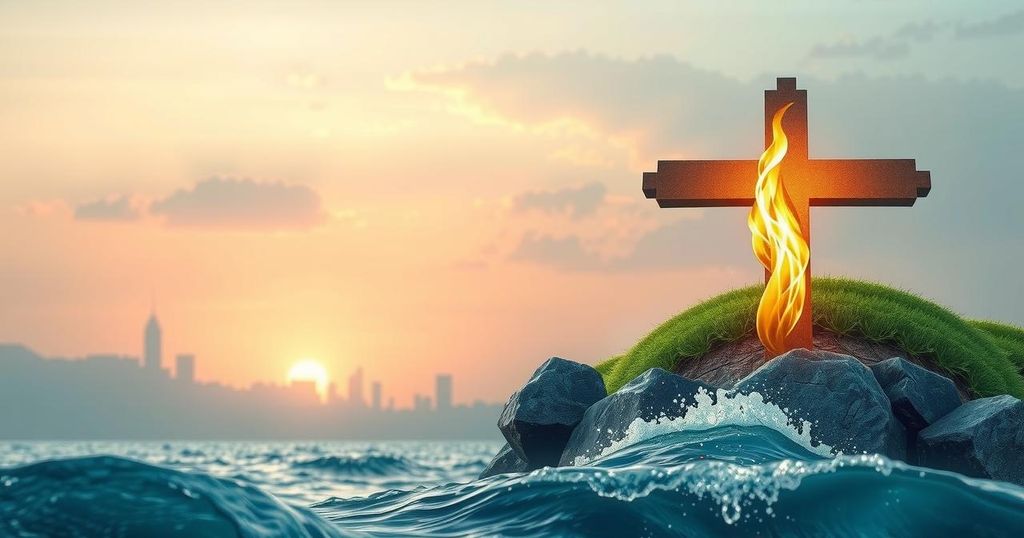Religious leaders in the DRC organized a prayer gathering in response to the capture of Goma by M23 fighters. They emphasized unity among churches and called for both local support for armed forces and international actions against aggression. Leaders also proposed a crisis exit plan during a meeting with President Tshisekedi, stressing the need for national cohesion amid the turmoil in the eastern regions of the country.
In response to the recent fall of Goma to M23 rebels, religious leaders in the Democratic Republic of the Congo (DRC) convened a prayer event on February 3 in Kinshasa. During this gathering, church leaders met with the President to propose a crisis exit strategy amid growing concerns of foreign aggression, specifically citing Rwandan involvement. Ediba Yamapia, of the Pentecostal Church, emphasized the nation’s need for unity and divine assistance during these tumultuous times.
The prayer gathering was sparked by Minister of Justice Constant Mutamba’s appeal for religious groups to promote a day of prayer against the perceived Rwandan aggression and advocate for peace. With Goma now in the hands of M23 forces, the urgency of the meeting increased, leading to a collective call for donations to bolster the Congolese military. The interfaith platform underlined the importance of national solidarity in times of conflict despite internal differences.
During the event, revival church representatives issued a statement condemning the attacks on the DRC, urging international action against M23 and Rwandan elements, while supporting local defense groups and the government. They stressed the necessity for the global community to take decisive measures rather than merely issuing statements of disapproval. With further protests threatened if no action is seen shortly, the religious leaders called for intensified engagement from the international community.
Absent from the public prayer event, leaders from the National Episcopal Conference of Congo (CENCO) and Church of Christ in Congo (ECC) had a distinct meeting with President Tshisekedi that same day. They presented an exit strategy focused on fostering national unity, a pressing need highlighted by the ongoing conflict. The details of this plan were not publicly disclosed, yet the churches expressed encouragement from the President’s response.
Amid the escalating crisis, CENCO also conveyed a message of solidarity to the affected populations in the war-torn provinces of North and South Kivu, acknowledging the dire humanitarian situation. They noted the importance of reflection and understanding the conflict’s complexities as they work towards viable solutions for peace.
The Democratic Republic of the Congo (DRC) has experienced ongoing conflict, particularly in the eastern regions, compounded by external influences such as Rwandan military involvement. Following M23 rebels’ seizure of Goma, a significant city in North Kivu, public fear and unrest escalated, prompting religious leaders to call for unity and support for the Congolese armed forces. As such, the interfaith gathering reflects a broader desire for resilient national leadership and widespread peace efforts amid crisis.
The interfaith gathering in Kinshasa, called in reaction to the fall of Goma to M23 rebels, signifies a pivotal moment for religious leaders in the DRC, advocating for both spiritual support and concrete actions to restore peace. Their unified stance against foreign aggression and commitment to national cohesion highlights the urgent need for both local and international efforts to protect the DRC’s sovereignty and address the humanitarian crises stemming from ongoing conflict.
Original Source: international.la-croix.com




